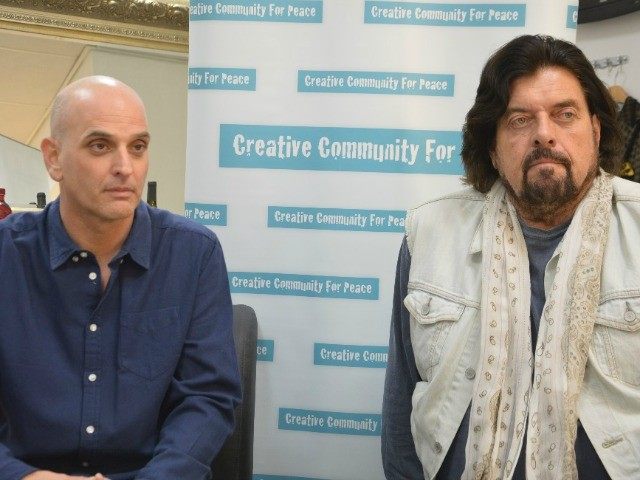The anti-Israel Boycott, Divestment, and Sanctions (BDS) movement is front and center in an ongoing feud between progressive rock music pioneer Alan Parsons and former Pink Floyd bassist Roger Waters.
In a February 7th Facebook posting, Waters published a letter he sent Parsons “a few weeks ago,” asking the ten-time Grammy nominee to “reconsider” his February 10 performance in Tel Aviv. Respectively declining the request, Parsons wrote, “Music knows no borders, and neither do I.”
Waters, not satisfied with Parsons’ decision, took to Facebook again, publishing a second letter he sent, which according to Parsons is a violation of his “clearly stated desire that the whole matter of his ‘problem’ with my concert in Israel should remain private between the two of us.”
It was not until Waters took the matter public that Parsons decided to publish his response.
Lana Melman, Director of the Creative Community for Peace (CCFP), arranged an exclusive interview with Parsons and his band’s Israeli bassist, Guy Erez. The conversation, right before their Tel-Aviv performance, challenged Waters’ motives and took the BDS movement to task for “censorship.”
CCFP: Alan, you mentioned bringing people together. And as you for sure know now, there’s the cultural boycott movement which basically wants two main things: to prevent international artists like you [Alan] from coming to Israel and to prevent Israeli artists like you [Guy] from performing abroad. Do you guys see this as a form of censorship at all? And do you think it can have any particular impact on the artistic community?
Parsons: It’s totally censorship, yeah. I mean, people who follow it would be considered succumbing to censorship. But we didn’t. We said we want to do this.
CCFP: You had a lot of pressure. And not even just from activists but also from your fellow musician Roger Waters. How did it feel to be getting that pressure onto yourself and why was it important for you to not listen and to come here?
Parsons: Well, Guy would have killed me to start with.
Erez: If he doesn’t come and visit my country, we have a problem.
Parsons: No, the language of music has nothing to do with the language of politics. I don’t think… I have no aspiration towards political statements, contrary to what certain musicians do. I don’t think any of the band does, particularly.
Erez, a native Israeli who was discriminated against in the past at an undisclosed European venue, questioned Waters’ motives.
“Instead of saying don’t go here and there and play, if Roger Waters really wanted to be a peaceful person, why won’t you take a group of Israeli kids and Palestinian kids and make a camp of making music together. Use the power of music to put people together. But don’t just say ‘I’m taking a side, don’t share music with the Israeli people,” Erez said. “Why do the Israeli people or any other people have to get punished even though let’s say you disagree with their government? It’s just something I don’t understand how he even puts it together.”
Waters’ past anti-Israel rhetoric, deemed anti-Semitic by the Anti-Defamation League, claims Israel is a “racist apartheid regime” that practices “ethnic cleansing” and compares Jews to Nazi collaborators.
Waters has had limited success in getting prominent musicians to boycott the Jewish State.
Last year the Rolling Stones, Justin Timberlake, and Lady Gaga performed in Israel. Paul McCartney, Elton John, Red Hot Chili Peppers, Black Eyed Peas, and Metallica have also performed in the Jewish State in recent memory.
Hard rock icon KISS has already announced they will perform in Tel Aviv this summer, as has arguably the most popular artist in the world, Taylor Swift.
Waters is currently promoting his support for a new anti-Israel campaign, Artists for Palestine UK, that calls for “a cultural boycott of Israel.” The campaign claims to have nearly 1,000 signatories.
CCFP has an ongoing Anti-Boycott petition that is closing in on 29,000 signatures.
Paul Miller is Executive Director of the Salomon Center. Follow him @pauliespoint.

COMMENTS
Please let us know if you're having issues with commenting.